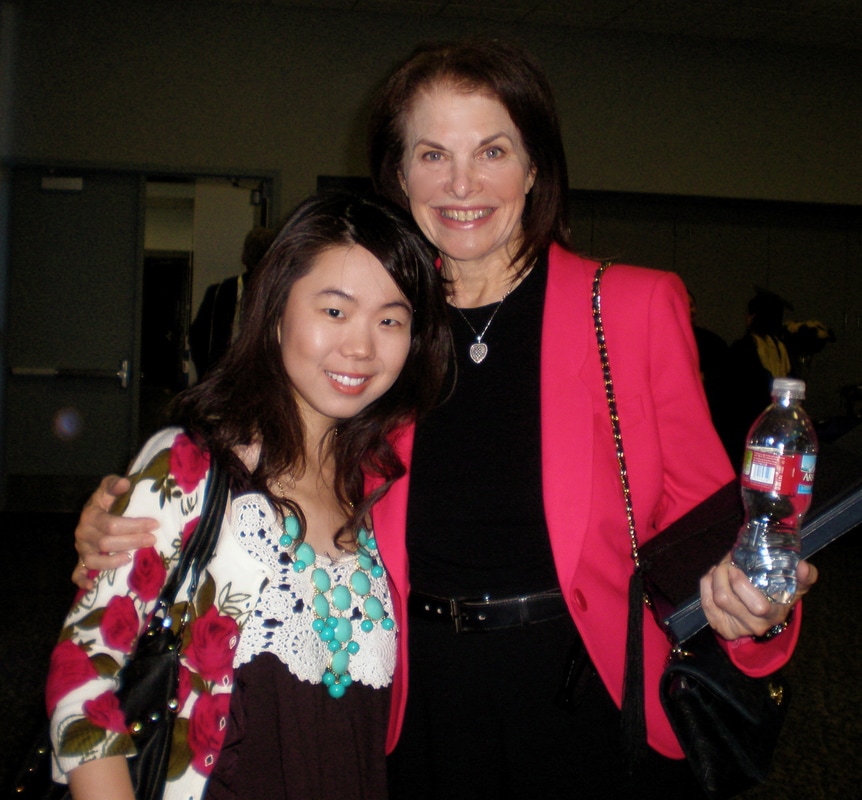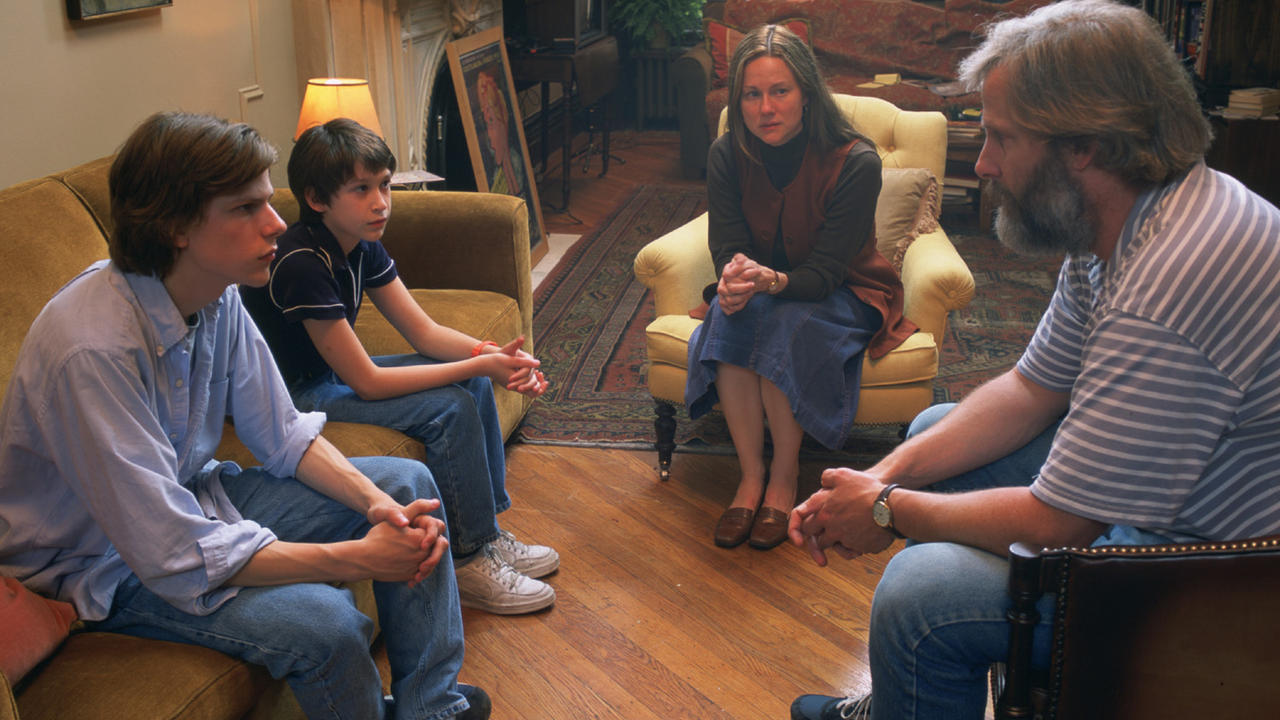|
For those of you who don't know me, I am quite obsessed with Sherry Lansing, former CEO of Paramount Pictures, the first woman to ever head a Hollywood movie studio (when she became president of production at 20th Century Fox), and a highly successful independent film producer (where she was responsible for such hits as Fatal Attraction, Indecent Proposal, and more).
I already wrote an entry about Sherry and her thoughts about money. Basically, she is a super conservative investor as her theory is - "I've worked hard for my money. I'm not going to gamble it away." Sherry was right to be conservative. The movie industry is a tough place to work, and you are only as good as your last hit. You have too many financial flops, and you're out. Sherry also subscribes to the "money is freedom" theory. "From the time I started making money at Fox -- I was 35 - I always wanted to save to have enough so that I didn't have to worry," Ms. Lansing said. "If you ever need a job, you will always do the safe thing because you will be scared. The only way you can perform in a job is if you don't need it. Then you can make pure decisions that are not based on fear." James Cameron, the movie director, has some different ideas about money. He subscribes to the theory of "I'll always be able to make money no matter what happens" and is willing to take more gambles. As Vanity Fair said, he really is a man of extremes. What else could you expect from a truck driver / school janitor who decided one day that he wanted to be a film director and then ultimately ends up making movies like Terminator, Titanic, and Avatar? This particular story illustrates Cameron's attitude toward money. When Cameron was making Titanic, the budget was initially set at ~$110 M and was funded by 20th Century Fox. The budget proceeded to skyrocket while in production, with ~$3-$4 M being spent every week, and ultimately, the budget ended up at ~$230 M. Paramount Pictures stepped in and offered $65 M in funding, with the stipulation that any profits be split 50/50. It was an extremely difficult production and at one point, Cameron offered to give up his directing fee and potential profit points, which meant that he would give up any profits he would make if Titanic became a hit. 20th Century Fox never took him up on the offer because they were convinced that Titanic would be a flop (perhaps at best, it would break even) and in doing so, Cameron walked away with upwards of $100 M when Titanic did turn out to be a smash hit. Now think about this - Cameron had worked on Titanic for three solid years, 7 days a week (he took a day off to get married to his 4th wife, Linda Hamilton). By giving up his directing fee and potential profit points, he basically would have worked for free all those years. Cameron certainly wasn't poor - he had made some money off Terminator 2 and True Lies. But in his mind, he thought that maintaining his integrity and good relationship with 20th Century Fox was much more important than the money he would have made, especially considering how out of control the production budget got. Cameron is someone who truly loves making movies and I believe that while the buckets of money he made was a generous byproduct of his work, money was never his primary motivator - making a great movie was. I believe that after Sherry achieved F*** You money as well (she made this after Fatal Attraction became a monster hit), she still kept working because she loved making movies too. So here's my main takeaway from these two very interesting people: 1) Find an industry to work in that genuinely interests you 2) Make sure you are paid decent money 3) Save and invest as aggressively as you can 4) Think about the life choices you make and how those choices can affect when you become financially independent (when you have enough money that you don't ever have to work again and can pretty much spend your days doing whatever you want) 5) Operate your life without fear
Comments
I'm a big Jodie Foster fan and in several interviews that she's done, she talked about how when she was younger and working as a child actress, people would say to her, "Jodie, you'll be completely washed out by the time you're 40 and you won't ever work again after that."
Well, Jodie did keep working after age 40, but she was smart and did the following: she started to produce and direct movies, and she was smart about saving and investing her money early on!! She DIVERSIFIED her life portfolio. I just read this absolutely fascinating NYMag post where an anonymous entertainment accountant talks about her super famous clients and how surprisingly clueless they are about money. Lesson of the post: As an entertainer, you might hit it big, but it won't last forever. Stock away your money because the hits will stop one day. And when they do, you won't be struggling because you were smart early on and have enough money to live on for the rest of your life! "My clients are actors, musicians, writers, newscasters, directors, models, and producers, many of them Grammy and Academy Award winners ... It’s insane, because they don’t live in the real world. They don’t understand anything about how normal, everyday stuff works. Why do you not understand that because you made 1 million, 5 million, 10 million this year doesn’t mean you’re going to make it next year, and the year after! For god’s sake! You can enjoy yourself, but take a percentage of it and put a little bit of money away! And if you have a mortgage, pay down the principal. Try to build up some actual equity in your home. If you have children, create a small trust fund for them. I think in all these years, I’ve had a total of two clients who have retirement funds. Only two. Some of them have investment accounts, but they’ll set them up in the “up” years, then, as soon as the bookings drop or they don’t work or the show they’re on is cancelled, they go through that money like water because they refuse to scale back their life style. We will say, “Guys! You need to cut back.” “Oh, I can’t cut back.” Yes, you can. “You want me to stay at Motel 6 and shop at Target?” No. But real people live on the amount of money they have coming in. They live within their means. I’m sorry, but I think most people could live comfortably on a million dollars! But for some reason, they can’t. They think they’re going to be famous and rich forever. You try help them onto the right path. It’s a weird the satisfaction you get when you can help someone else get financially set up and secure for life. Most of them are surrounded by people who tell them they can do no wrong so it takes a strong person to come through all that and be levelheaded and down-to-earth." The following interview is conducted with a young woman in her early 30s who works in finance. Below are her thoughts about her parents' divorce and how it affected the way she views life.
1) How did your parents' divorce in your teens affect how you think about money? My parents' divorce was perhaps the biggest influence in shaping my perspectives about money, and subsequently my career. Seeing the chaos at home while my parents were together, and later as my mother returned to the workforce as a single parent, instilled in me a profound fear of repeating these same patterns. The financial stress (real or perceived) was pervasive and touched each purchase, making even family vacations guilt-inducing rather than truly relaxing or bonding. I remember growing up with an arbitrary sense of scarcity, and the notion that every single purchase, ranging from grocery store shopping to clothing to dinners out, came with immense guilt. There was no line between spending with freedom and purpose, and buying things "we couldn't afford". Post-divorce, this mentality continued and was compounded by my mom's reliance on alimony after an acrimonious split. She was not independent, free, or self-sufficient, and was instead tethered to an ex-husband who resented her. She had to fight for each payment, and struggle to maintain employment in a competitive workforce that she had left years ago. Besides illustrating the vulnerability of non-earners in single-income households, the divorce also refined my perception of gender roles and brought the disparity into focus. My mom was a devoted caretaker and manager of the household: we had freshly laundered towels every single day, homemade french toast for breakfast, and were routinely and punctually driven to school, appointments, and activities by my mom. She was involved in the PTA and served as a dutiful biographer of the family, always with a camera in hand to snap photos for the yearly scrapbooks documenting our lives. These were the activities that filled her time in place of the full-time job she had before choosing to stay at home and raise the children. In the divorce, my mom received alimony and child support, calculated on variables such as duration of the marriage, age of the children, and earning capacity. Quality of care-taking was not a factor in determining a fair settlement for my mom, and it was disheartening to see how little value is tangibly ascribed to "home production" activities. As the sole earner, my dad held most of the power. While divorce is not predictable, I saw these financial challenges as issues that could have been avoided with preparation and foresight. I decided that I did not want to live the way my mom did, and I would do everything I could to prevent that. Independence became a virtue and a mindset - if I wanted a house someday, it would be wise to expect to pay for it myself - and I decided that I was responsible for crafting the life I wanted. No one else could necessarily be relied upon to deliver that permanently. Sentiments and life circumstances change, and I can envision myriad outcomes and ways to be prepared. My perspective is not bleak or antithetical to romance, however; I see a potential partner providing emotional fulfillment and companionship, and am not expecting my material needs to necessarily be provided for. This is the privilege of self-sufficient individuals - we can search for partners we want, not partners we need. 2) How did that impact what you ultimately decided to do, career-wise, post-college? My parents' relationship with money influenced how I thought about careers even before they technically separated (when I was 15). I saw them argue about finances and purchases frequently, and there was an overall attitude of "never being able to afford anything", except when my parents chose to spend. It was a confusing, contradictory, and seemingly arbitrary approach to spending the created tension in the household and became a main focal point of daily life. Observing the consistent stress, attention, and energy my parents spent on finances, I decided at around age 13 that I never wanted to feel so constricted by money in my own adult life. I wanted the freedom to spend without crippling guilt or devoting overwrought attention to budgeting, so a career in business or law seemed like a good path. I started college with the intention of being a lawyer, and planned to major in economics and business and minor in rhetoric. I loved the material, and particularly took to analytical courses in economics and statistics. When I learned about the field of investment banking in sophomore year, the nature of the job (analytical, rigorous, quantitative) and the pay made it seem like a good post-undergrad career. I wanted to be financially independent as soon as possible, and entering investment banking allowed me to do that right away. I feel lucky that I enjoyed the field enough to want to stay in finance. While I enjoy my job, earning the type of income where I do not have to stress about finances the way my parents did certainly makes me appreciate the job even more. Earning that level of income is not sufficient for devoting oneself to a career (for me), and it's perhaps not really absolutely crucial compared to having passion for my career, but it is something I greatly appreciate. 3) When you look back at the divorce, how do you think that shaped you as a person? The divorce definitely reinforced the value I place on independence and self-sufficiency, and also probably contributed to my ambition. Seeing that a marriage does not necessarily provide security shattered an illusion that many young people hold, I think. That experience adds dimension to how I imagine the downside, and it allows me to prepare accordingly. For example, I would like to have a relationship and family, but I also plan to stay in the workforce throughout that. I can vividly imagine a scenario where my partner changes in ways I could not foresee and decides he does not want the life we built together anymore, perhaps when the kids are in junior high or high school. If that were to happen, and I had to rely solely on alimony and child support, that would add a layer of stress to an already challenging life event. This scenario played out in my family, and I saw my mom leave her job to raise my brother and me as children, and then be forced to re-enter the workforce much later and compete in a different employment landscape. Her struggle and the tension arising from spousal support disputes were acutely painful, and I hope that remaining in the workforce helps mitigate any risk that I face those financial challenges in the future. |
What is this?
An anthropological look at how people think about money. Created and edited by Star Li. Archives
December 2022
Categories
All
|




 RSS Feed
RSS Feed